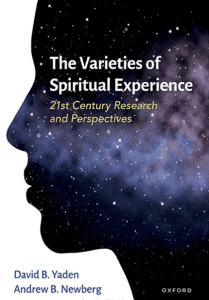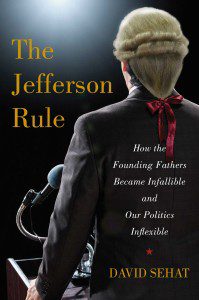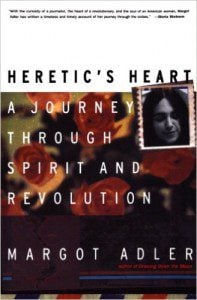The Unitarian Universalist Congregation of Frederick, Maryland, where I am the minister, recently hosted a celebration for the recent victories in Maryland for Marriage Equality and Immigration Justice. We were grateful that almost 200 people attended, and that the event was covered by both the also fortunate that both the local paper and a local TV station. This post is an annotated version of my remarks for the occasion.
As a religious people who affirm human compassion, advocate for human rights, and seek justice,
we must never make the mistake of confusing a legal right with a moral right. The forced removal of Native Americans from their land and onto reservations was legal. The importation and sale of African slaves was legal. South African apartheid was legal. The confiscation of the property of Jews at the beginning of the Nazi regime was legal. The Spanish Inquisition was legal. Crucifying Jesus was legal. Burning Michael Servetus at the stake for his Unitarian theology was legal. The powerful have always used the legal system to oppress the powerless.
It is true that as citizens we should respect the rule of law. More importantly, though, our duty is to create laws founded on our highest sense of justice, equity, and compassion. Loud voices urge us to choose fear, denial, reactionary nationalism, and racism. We must resist and choose the better way urged by every major religious tradition. We must choose the path of compassion and hope. We must choose a path that is founded on the recognition that we are connected, that we are all in this together.
—Peter Morales, “We Are One,” A People So Bold
The Rev. Dr. Martin Luther King, Jr. was born on January 15, 1929. If he were alive today, he would be 84 years old. Instead, he was tragically assassinated on April 4, 1968 at the far-too-young age of 39. But his words, his deeds, and his dream live on. And our nation has reserved the third Monday of each January as a reminder and invitation to continue turning dreams into deeds.
In the almost 45 years since his death, there have been many occasions in which King’s dream has become more fully a reality. And this morning, we’re here to celebrate one of those times. The media regularly reminds us of the many problems in our world and the political gridlock that often inhibits progress, but when love wins, when peace prevails, and when the marginalized are included, we need to pause and savor that moment. Much work still cries out to be done for immigration justice, marriage equality, and many other issues from gun control to the death penalty, but together we have made landmark, tangible progress in this past election. And that is more than enough reason to celebrate!
To reconnect us to the moment we are celebrating, consider the following excerpt from an article in The Washington Post published on November 7, the morning after the election:
By the time the polls closed Tuesday, Maryland voters had done something unprecedented — twice. They narrowly approved one ballot measure allowing same-sex marriage and gave broad approval to another that extends in-state college tuition rates to some [undocumented] immigrants. No similar measures — in which majorities conferred rights on minorities — had ever been enacted by a public vote in any state.
Such victories embolden future efforts in Maryland and other states as well as action on a federal level.
Marriage Equality
This morning, I would like to say a few words about the victory for Marriage Equality, and then a few words about the Dream Act. With the passage of Question 6 in Maryland, same-sex marriage became legal to celebrate in this and other sanctuaries across the state on January 4, 2013. (Happy New Year!) And I’ve already had two different same-sex couples contact me about officiating at weddings for them in the coming months.
Part of our joy is also that Maine and Washington passed similar measures. As the president of the Unitarian Universalist Association Peter Morales said in the wake of the election, “more Americans realize that the freedom to marry strengthens families, protects children, and ensures the basic rights of citizenship for lesbian, gay, bisexual and transgender couples.”
On a related note of inclusion, the citizens of Wisconsin elected our nation’s first openly lesbian Senator, Tammy Baldwin. More recently, headlines proclaimed that, “Washington National Cathedral — the seat of the Episcopal Church, one of the world’s largest cathedrals and the host of the official prayer service for the presidential inauguration… — has decided to start hosting same-sex weddings.”
Our congregation has for many years been a part of the Unitarian Universalist Association’s “Welcoming Congregation Program” to promote and celebrate the inclusion of lesbian, gay, bisexual, and transgender members. Looking more broadly, “This past year the number of UUA-recognized Welcoming Congregations broke 700, making for a full two-thirds of all UU congregations. We also achieved a recognized Welcoming Congregation in every state.” That’s a remarkable witness for inclusion, and we should celebrate the ways that multiculturalism and inclusivity are increasingly valued in the wider culture.
The DREAM Act: Immigration Justice
Turning our focus to Question 4 on the DREAM Act, the main focus of this summer’s annual Unitarian Universalist General Assembly was on Immigration Justice, and as I reflect on what I learned during that week in June, one of the points that still stands out to me most starkly is a keynote speaker who said, “The U.S. Immigration System is not broken; it was designed to be difficult.” And another speaker particularly drove home to me the urgency of passing a more humane immigration system with a quote from the Holocaust survivor and Nobel Laureate Elie Wiesel on the importance or not using the term “illegal immigrant.” Wiesel has said:
Do not use that term illegal to refer to these immigrants because there is no such thing as an illegal human being. You may have broken an immigration law…in this case actually a misdemeanor…but that does not make you an illegal person. That’s as if you have ever been stopped for speeding and given a ticket…does that make you an illegal driver now? There is no such thing as an illegal human being and it is a dangerous term to use. The Nazis declared the Jews to be an illegal people and that was the beginning of the Holocaust.
As we look to the future and as President Barack Obama prepares to set the agenda for his second term in office, Peter Morales, who is the first Latino President of Unitarian Universalist Association, has recently written the following as his recommendation of where we should go from here in pursing immigration justice:
immigration policy reform should uphold family unity as a priority of all immigration policies; create a process for undocumented immigrants to earn their legal status and eventual citizenship; protect workers and provide efficient channels of entry for new migrant workers; facilitate immigrant integration; restore due process protections and reform detention policies; and align the enforcement of immigration laws with humanitarian values.
Relatedly, the Unitarian Universalist Association has signed the Interfaith Immigration Coalition’s (interfaithimmigration.org) “Interfaith Platform on Humane Immigration Reform.”
I do not know if the DREAM Act was intentionally meant to allude to Martin Luther King, Jr.’s famous “I Have a Dream” speech. Technically, the DREAM Act is an acronym for “Development, Relief, and Education for Alien Minors,” but in my understanding of King’s legacy, his “dream deeply rooted in the American dream” extends naturally in the twenty-first century to include a more hopeful future for the children of undocumented workers. And as President Obama prepares to take the oath of office tomorrow on Martin Luther King, Jr’s Day and on not one, but two Bibles — one owned by Martin Luther King Jr. and one by Abraham Lincoln — I was glad to see that Immigration Reform is reported to be on the administration’s agenda. According to The New York Times: “President Obama plans to push Congress to move quickly in the coming months on an ambitious overhaul of the immigration system that would include a path to citizenship for most of the 11 million illegal immigrants in the country.”
A Single Garment of Destiny
Speaking of President Lincoln, how many of many of you have seen the film Lincoln? Now, I realize that there is a good bit of artistic license taken with this film, but after taking the oath of office on Lincoln’s Bible, how many of you would like to see President Obama begin his Second Inaugural Address by saying, “I am the President of the United States of America! Clothed in immense power! You will procure me these votes.”
But then the question becomes what issue gets priority. I suspect that some of you are here this morning mostly to celebrate the victory for the DREAM Act. Others of you may be here mostly to celebrate the victory for Marriage Equality. Still others of you may be here to celebrate both. Or perhaps you had no idea this morning that you were walking into a celebration. Similarly, I mentioned earlier that there is important work to be done in coming months on Gun Control legislation and repealing the death penalty. But I realize that we may not all be in agreement about how to best move forward regarding these various issues.
Part of the good news at least for this morning is that Unitarian Universalism has a strong tradition of both a “free pulpit” and “free pews.” In other words, I’m free to say whatever I feel called to responsibly say from this pulpit, but you are free to only go along with my words insofar as your conscience allows. But my hope is that there is an extent to which we can all be here this morning not only in the sense of “politics makes strange bedfellows” or the minimal sense of building coalitions strategically, but also in the more robust sense that Martin Luther King, Jr. wrote about in his “Letter from a Birmingham Jail” that, “Injustice anywhere is a threat to justice everywhere. We are caught in an inescapable network of mutuality, tied in a single garment of destiny. Whatever affects one directly, affects all indirectly.” We UUs call this principle the “Interdependent web of all existence.”
I spoke earlier about this past summer’s 2012 Unitarian Universalist General Assembly in Phoenix on Immigration Justice. But on the eve of MLK Day, I want to invite us to reflect on the wisdom King has to offer us today by looking back at the 1966 General Assembly of the Unitarian Universalist Association in Hollywood, Florida when the Dr. Martin Luther King, Jr. was the keynote speaker. Part of his advice that day to the gathered Unitarian Universalists was “Don’t sleep through the revolution.” To illustrate his point, he said the following:
I’m sure that each of you has read that arresting little story from the pen of Washington Irving entitled Rip Van Winkle. One thing that we usually remember about the story of Rip Van Winkle is that he slept twenty years. But there is another point in that story which is almost always completely overlooked: it is the sign on the inn of the little town on the Hudson from which Rip went up into the mountains for his long sleep. When he went up, the sign had a picture of King George III of England. When he came down, the sign had a picture of George Washington, the first president of the United States. When Rip Van Winkle looked up at the picture of George Washington he was amazed, he was completely lost. He knew not who he was. This incident reveals to us that the most striking thing about the story of Rip Van Winkle is not merely that he slept twenty years, but that he slept through a revolution. While he was peacefully snoring up in the mountains a revolution was taking place in the world, that would alter the face of human history. Yet Rip knew nothing about it; he was asleep. One of the great misfortunes of history is that all too many individuals and institutions find themselves in a great period of change and yet fail to achieve the new attitudes and outlooks that the new situation demands. There is nothing more tragic than to sleep through a revolution.
To consider King’s point for today, we still do not have full equality for same-sex couples in this country, but if we were to rewind the clock back 20 years to 1993, we would see that the Department of Defense was issuing it’s “Don’t Ask Don’t Tell Policy.” In 1993, we were still three years away from President Clinton signing the “Defense of Marriage Act,” which defined marriage as the legal union of one man and one woman for federal and inter-state recognition purposes in the United States. That piece of legislation has now been ruled unconstitutional in a handful of federal courts, and the Supreme Court may well be ruling on it in 2013. What a different world twenty years can make! Similarly, the DREAM Act was originally introduced in 2001, and President George W. Bush lobbied in good faith for its passage, unfortunately to no avail. The passage of time is no guarantee of progress, but positive social change can come with time and hard work.
And if we want to avoid sleeping through the hopefully continuing revolution, I invite you to consider two of Martin Luther King, Jr.’s recommendations. First, he said that we need a “world perspective…. We must live together as brothers [and sisters] or we will all perish together as fools.” We need to listen to one another, help one another, and commit to deeply to the truth that, “Injustice anywhere is a threat to justice everywhere. We are caught in an inescapable network of mutuality, tied in a single garment of destiny. Whatever affects one directly, affects all indirectly.” For this reason, I’m grateful to be here with you this morning for this celebration.
Second, King said, “to remain awake through this revolution [we must] move out into the arena of social action.” King believed that legislation matters. He said:
It may be true that the law cannot change the heart, but it can restrain the heartless. The law cannot make a man love me, but it can restrain him from lynching me, and I think that’s pretty important also. And so while the law may not change the hearts of men, it does change the habits of men.
And in coming years, happy, healthy same-sex couples (who also have all the same problems and struggles that heterosexual couples have) will change us and our society; indeed, they already have changed us for the better.
And the success of students who benefit from the DREAM Act will change us and our society — again, I believe, for the better. And I’m grateful to celebrate these victories this morning. As we also look beyond this morning’s celebration to the next steps we should take for greater social justice, I offer you these words of Dr. King from the end of his 1966 address to the UU General Assembly:
I have not despaired of the future. I believe firmly that we can solve this problem. I know that there are still difficult days ahead. And they are days of glorious opportunity. Our goal for America is freedom. Abused and scorned though we may be, our destiny is tied up with America’s…. [W]e will be able to hew out of the mountain of despair a stone of hope. We will be able to transform the jangling discords of our nation into a beautiful symphony….”
May the victories we celebrate this morning embolden us all in the ongoing work for peace, liberty, and justice for all. In that spirit, I would like invite you to hear again the words that I offered at the end of the sermon I preached from this pulpit back in September on Immigration Justice. They are from a benediction called the “Franciscan Blessing,” from the tradition of Francis of Assisi:
May you be blessed with discomfort at easy answers, half truths, and superficial relationships, that you may live deep within your heart.
May you be blessed with anger at injustice, oppression, and exploitation of people, that you may work for economic justice for all people.
May you be blessed with tears to shed for those who suffer from pain, hunger, homelessness and rejection, that your may reach out your hand to comfort them and to turn their pain into joy.
And may you be blessed with enough foolishness to believe that you can make a difference in the world so that together we can do what others claim cannot be done.
Notes
1 “With Maryland ballot measures, voters do the unprecedented — twice,” available at http://www.washingtonpost.com/local/dc-politics/with-maryland-ballot-measures-voters-do-the-unprecedented–twice/2012/11/07/9d4a851e-2908-11e2-96b6-8e6a7524553f_story.html.
2 Peter Morales, “UUA President Applauds Marriage Popular Vote” (November 7, 2012), available at http://www.uua.org/news/pressroom/pressreleases/280924.shtml.
3 “Same-sex weddings to begin at Washington National Cathedral,” available at http://www.washingtonpost.com/local/washington-national-cathedral-to-start-holding-same-sex-weddings/2013/01/08/ed72c5f0-59f1-11e2-88d0-c4cf65c3ad15_story.html.
4 Welcoming Congregation statistics — Janice Marie Johnson, “The Joys and Opportunities of Multiculturalism” (January 8, 2013) in a speech at Meadville-Lombard Theological School.
See also, “Generation LGBTQIA,” available at http://www.nytimes.com/2013/01/10/fashion/generation-lgbtqia.html. An excerpt:
in recent years the post-post-post-gay-rights banner has gotten significantly longer, some might say unwieldy. The emerging rubric is “L.G.B.T.Q.I.A.,” which stands for different things, depending on whom you ask. “Q” can mean “questioning” or “queer,” an umbrella term itself, formerly derogatory before it was appropriated by gay activists in the 1990s. “I” is for “intersex,” someone whose anatomy is not exclusively male or female. And “A” stands for “ally” (a friend of the cause) or “asexual,” characterized by the absence of sexual attraction.
5 Peter Morales, “5 Action Items for Obama,” available at http://www.huffingtonpost.com/rev-peter-morales/5-action-items-for-obama_b_2489762.html:
Last year was a watershed year in the ongoing struggle for marriage equality. This spring, the U.S. Supreme Court will hear arguments regarding the constitutionality of California’s Proposition 8 and the Defense of Marriage Act. Though this is now a matter for the judiciary and not the legislative or executive branches, it is my fervent hope that the freedom to marry will soon be a right afforded to all. In the days, weeks, months and even years ahead, there will inevitably be other challenges to face in the ongoing process “to form a more perfect union.” As we mark the 84th anniversary of the birth of Dr. King, I call upon the Administration, Congress, and all Americans to work toward the goal of “liberty and justice for all.” There is nothing more tragic than to sleep through a revolution.
6 Elie Wiesel was quoted by Maria Hinojosa, who delivered the 2012 Ware Lecture, which is highly recommended in full: http://www.uua.org/immigration/re/ga/208868.shtml.
7 “Obama To Use MLK, Lincoln Bibles During Oath At Presidential Inauguration,” available at http://www.huffingtonpost.com/2013/01/10/obama-using-mlk-lincoln-b_n_2447174.html.
8 “Obama Will Seek Citizenship Path in One Fast Push,” available at http://www.nytimes.com/2013/01/13/us/politics/obama-plans-to-push-congress-on-immigration-overhaul.html.
9 For more on Gun Control, see my sermon on “Politics of the Broken Hearted: Gun Rights and Gun Responsibilities,” available at http://www.patheos.com/blogs/carlgregg/2012/12/politics-of-the-broken-hearted-gun-rights-and-gun-responsibilities/. On the hope of Repealing the Death Penalty in Maryland, see http://www.mdcase.org.
10 For more on the history of immigration reform, see http://topics.nytimes.com/top/reference/timestopics/subjects/i/immigration-and-emigration/index.html. An excerpt:
Republicans and Democrats have agreed for years on the need for sweeping changes in the federal immigration laws. President George W. Bush for three years pushed for a bipartisan immigration reform bill before giving up in 2007, blocked by conservative opposition. Since 2007, there has been no significant movement toward immigration reform. But it has been the subject of a fever of legislation at the state level, and it was a critical issue in the 2012 presidential campaign. During the November elections, Latinos turned out in record numbers and voted for President Obama, who won 71 percent of the Hispanic vote while Mitt Romney won just 27 percent. For Mr. Obama, immigration reform remains a top priority during his second term. He plans to push Congress to move quickly on an ambitious overhaul of the immigration system that would include a path to citizenship for most of the 11 million illegal immigrants in the country.
11 “1966 Ware Lecture: Don’t Sleep Through the Revolution,” by Dr. Martin Luther King, Jr., available at http://www.uua.org/ga/past/1966/ware/index.shtml.”
12 King’s term for being blessed with discomfort, anger, tears, and foolishness was “maladjusted”:
I never intend to adjust myself to segregation and discrimination. I never intend to become adjusted to religious bigotry .I never intend to adjust myself to economic conditions that will take necessities from the many to give luxuries to the few, and leave millions of people perishing on a lonely island of poverty in the midst of a vast ocean of prosperity. I must honestly say, however much criticism it brings, that I never intend to adjust myself to the madness of militarism, and to the self-defeating effects of physical violence…. Yes, I must confess that I believe firmly that our world is in dire need of a new organization – the International Association for the Advancement of Creative Maladjustment. Men and women as maladjusted as the prophet Amos, who in the midst of the injustices of his day, cried out in words that echo across the centuries—”Let justice roll down like waters and righteousness like a mighty stream.” As maladjusted as Abraham Lincoln, who had the vision to see that this nation could not survive half slave and half free. As maladjusted as Thomas Jefferson, who in the midst of an age amazingly adjusted to slavery, cried in words lifted to cosmic proportions—”We hold these truths to be self evident, that all men are created equal. That They are endowed by their creator with certain inalienable rights; that among these are life, liberty and the pursuit of happiness.” As maladjusted as Jesus of Nazareth, who could say to the men and women of his day “he who lives by the sword will perish by the sword.” Through such maladjustment we will be able to emerge from the bleak and desolate midnight of man’s inhumanity to man, into the bright and glittering daybreak of freedom and justice. [from his Ware Lecture]
13 Carl Gregg, “En La Lucha: (Dis)covery, (Im)migration, and Social Justice” (September 2, 2012), available at http://www.frederickuu.org/sermons/en_la_lucha.pdf.
The Rev. Dr. Carl Gregg is a trained spiritual director, a D.Min. graduate of San Francisco Theological Seminary, and the minister of the Unitarian Universalist Congregation of Frederick, Maryland. Follow him on Facebook (facebook.com/carlgregg) and Twitter (@carlgregg).
Learn more about Unitarian Universalism:
http://www.uua.org/beliefs/principles/index.shtml












